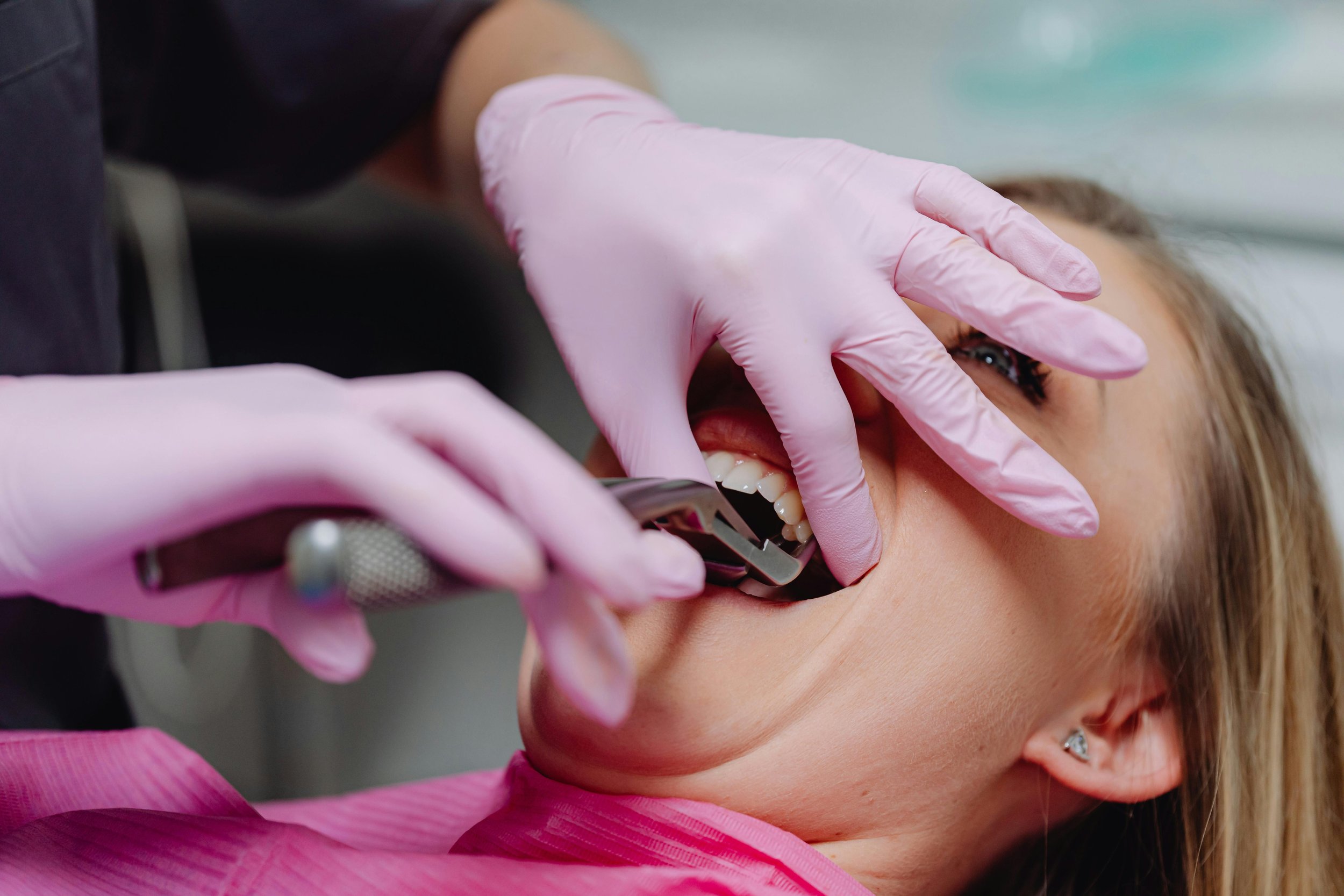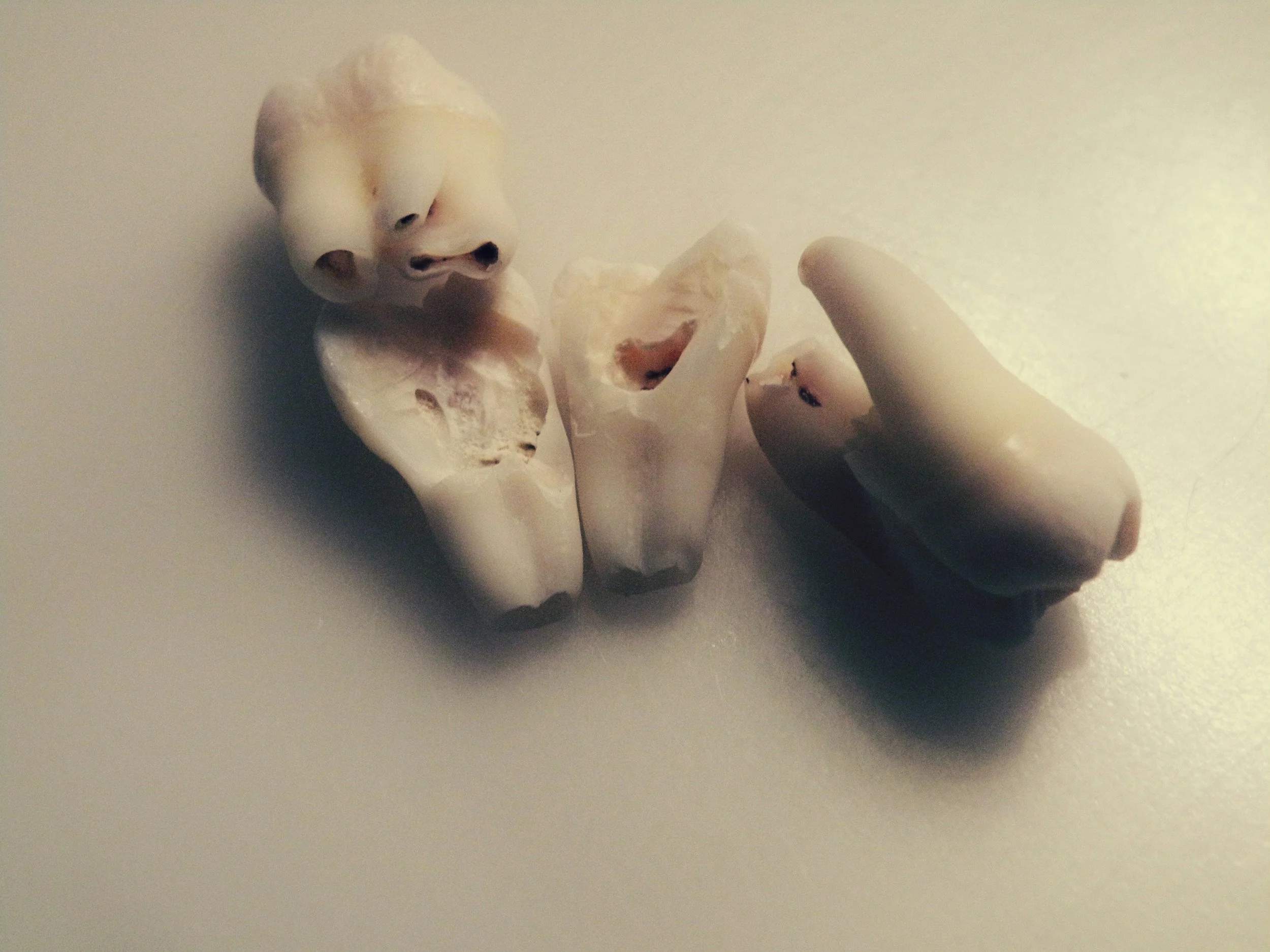
Teeth Extractions in Toronto
Affordable Teeth Removal in Toronto
Teeth Extractions by Dentists with Experience
Same-day appointments and Urgent Dental Care
Modern & Advanced Dental Clinics Equipped with the Hi-Tech Equipment
Our Services
Tooth Extractions
Tooth Extraction is the process in which a tooth is removed from your mouth due to various reasons such as tooth fracture, tooth infection, spacing issues or deep cavities. Receive expert care for surgical tooth extraction. Our skilled dentists are equipped with the latest techniques and technologies to perform surgical extractions, ensuring minimal discomfort and a successful outcome for your oral well-being.
Why are Tooth Extractions necessary?
Dental extractions are necessary when a tooth poses a risk to oral health and cannot be saved through other treatments. The benefits of getting teeth extractions is that it provides relief and solutions for a various dental problems.
Tooth extractions are necessary for various reasons, including:
Severe Tooth Decay: When tooth decay becomes so extensive that it cannot be effectively treated with fillings or root canal therapy, extraction may be the only viable option to prevent the spread of infection to other teeth.
Advanced Gum Disease: Periodontal disease can cause significant damage to the tissues and bone supporting the teeth. In severe cases where the teeth become loose and cannot be stabilized, extraction may be necessary to preserve overall oral health.
Impacted Wisdom Teeth: Wisdom teeth, also known as third molars, often don't have enough space to erupt properly and become impacted. Impacted wisdom teeth can lead to pain, infection, and damage to adjacent teeth, necessitating extraction.
Orthodontic Treatment: In some cases, teeth may need to be extracted to make room for orthodontic treatment, such as braces, to align the teeth properly.
Broken or Fractured Teeth: Teeth that are extensively broken or fractured beyond repair may need to be extracted to prevent further damage and alleviate pain.
Preparation for Dentures: In cases of severe tooth loss or damage, extraction may be necessary to prepare the mouth for dentures or other prosthetic devices.
Overcrowding: Sometimes, teeth may be extracted to address overcrowding issues, especially if there's not enough space in the mouth for all the teeth to erupt properly.
Infection: Untreated dental infections can spread to the surrounding tissues and even into the bloodstream, posing serious health risks. In such cases, extraction may be necessary to remove the source of infection.
Overall, tooth extractions are performed to maintain or restore oral health, alleviate pain, and prevent further complications.
What to Expect on Visit
A dental extraction, commonly known as tooth extraction, is a dental procedure in which a tooth is removed from its socket in the jawbone. This procedure may be necessary due to various reasons, such as severe tooth decay, advanced gum disease, tooth overcrowding, trauma, or the presence of impacted wisdom teeth.
The dental extraction process typically begins with the administration of a local anesthetic to numb the area surrounding the tooth.
Once the area is numb, the dentist uses specialized instruments to gently loosen the tooth from its socket. They carefully rock the tooth back and forth to widen the socket and separate the tooth's attachment from the surrounding tissues. If necessary, the tooth may need to be divided into sections for easier removal.
After the tooth is successfully removed, the dentist may place stitches to close the extraction site and promote proper healing. Gauze is often placed over the extraction site to control bleeding and aid in the formation of a blood clot.
How much is Tooth Extraction?
Teeth extractions usually cost between $250-650 per tooth in downtown Toronto. The range can vary for extractions because there are different types of extraction codes that the ODA uses.
Some of these differ based on how complicated the extraction can be, and whether adjunct procedures are required such as gum flapping, bone removal, tooth sectioning and bone grafting.
At Carlton Dental in Downtown Toronto, we follow the ODA Fee Guide so you can be ensured you are getting affordable dental care.
FAQs
-
Dental extractions are necessary when a tooth is severely damaged by decay, trauma, or infection, or if there are overcrowded or impacted teeth (such as wisdom teeth), which can cause pain or other dental issues.
-
With proper anesthesia, the extraction itself should not be painful. You may feel pressure during the procedure, but pain is usually minimal. After the anesthesia wears off, there may be some discomfort, which can be managed with pain medication.
-
Recovery generally takes a few days. You may experience some swelling and discomfort, but these should subside within 3 to 5 days. Following post-operative care instructions, such as avoiding hard foods and not smoking, will speed up healing.
-
Follow post-operative instructions to promote proper healing and minimize complications. Here are some general guidelines to follow:
Bite on Gauze: Keep the gauze pad placed by your dentist firmly in place by biting down on it and change it every 20-30 minutes. This helps control bleeding and allows a blood clot to form at the extraction site. Stop the use of gauze once bleeding is under control.
Avoid Disturbing the Extraction Site: For the next 24 hours, avoid touching the extraction site with your fingers or tongue to prevent irritation or dislodging the blood clot.
Take Pain Medication as Prescribed: If you experience discomfort or pain after the extraction, take the prescribed or recommended pain medication as directed by your dentist. Follow the dosage instructions carefully.
Apply Ice Packs: To minimize swelling, apply an ice pack or a cold compress to the affected area for about 10 minutes at a time. Use this technique intermittently during the first 24 hours following the extraction.
Avoid Rinsing or Spitting: Refrain from rinsing your mouth vigorously or spitting forcefully for at least 24 hours. This can disrupt the blood clot and may lead to prolonged bleeding or a condition called dry socket.
Be Gentle During Oral Care: Brush and floss your teeth as usual, but be cautious around the extraction site. Avoid brushing directly on the extraction site for the first day to prevent irritation.
Eat Soft Foods: Stick to a soft-food diet for the first few days after the extraction. Incorporate items like yogurt, soup, mashed potatoes, smoothies, and scrambled eggs. Gradually reintroduce solid foods as you feel comfortable.
Avoid Smoking and Alcohol: Refrain from smoking or consuming alcoholic beverages for at least 72 hours, as these can delay the healing process and increase the risk of complications.
Take Antibiotics if Prescribed: If your dentist prescribed antibiotics, make sure to take the full course as instructed. This helps prevent infection at the extraction site.
Attend Follow-up Appointments: Keep your scheduled follow-up appointments with your dentist. They will assess your healing progress, remove any stitches if necessary, and provide further instructions for post-extraction care.
Remember, these instructions are general guidelines, and your dentist may provide specific instructions tailored to your situation. If you experience excessive bleeding, severe pain, persistent swelling, or any other concerning symptoms, contact your dentist immediately for further guidance and evaluation.
-
For simple extractions with local anesthesia, it’s usually safe to drive home. However, if you’ve been sedated or had a surgical extraction, you may need someone to drive you.
-
A dry socket occurs when the blood clot at the extraction site is dislodged or fails to form, exposing the underlying bone and nerves. This can cause significant pain. To prevent dry sockets, avoid smoking, drinking through straws, and vigorous rinsing in the days following the extraction.
-
You should wait until the numbness from the anesthesia wears off before eating, which is usually a few hours. Start with soft foods and avoid chewing on the extraction site.
-
Antibiotics may be prescribed if the extraction site is infected or if there is a risk of infection. Your dentist will determine whether antibiotics are necessary based on your individual case.
-
While dental extractions are generally safe, potential risks include infection, dry socket, excessive bleeding, and nerve damage. Your dentist will take steps to minimize these risks.
-
Yes, dental implants are a popular option for replacing extracted teeth. In some cases, an implant can be placed immediately after extraction, while in others, the site needs time to heal before implant placement. Your dentist will guide you on the best timing for your situation.
Schedule an Appointment
Ready to achieve the healthy, beautiful smile you deserve?
Contact Carlton Dental today to schedule your appointment. Conveniently located in downtown Toronto, we welcome patients of all ages and look forward to serving you and your family with excellence in dental care. Thank you for choosing Carlton Dental as your trusted oral health partner.
More From Carlton Dental
At Carlton Dental, we offer a comprehensive range of dental services to address all your oral health needs. Whether you require routine cleanings and check-ups, restorative treatments, or cosmetic procedures, our experienced dentists are here to help.

















